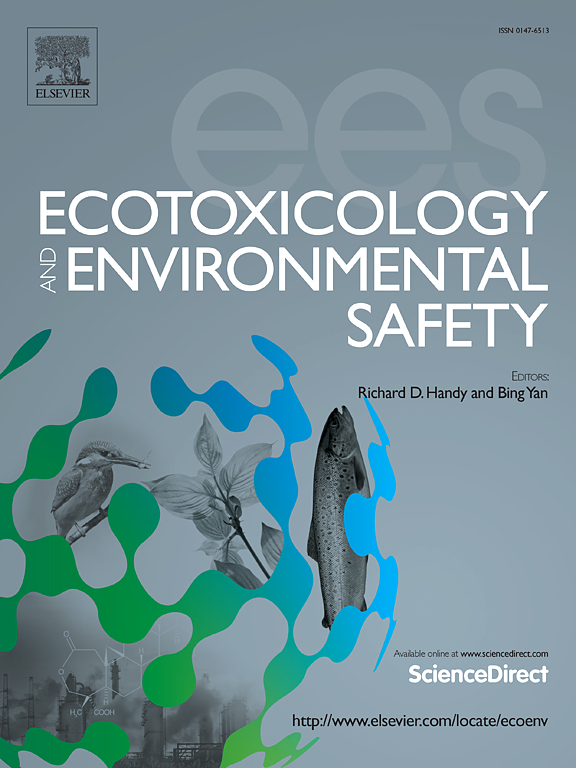Comparative impact analysis of nitrate reduction by typical components of natural organic compounds in magnetite-bearing riparian zones
IF 6.2
2区 环境科学与生态学
Q1 ENVIRONMENTAL SCIENCES
引用次数: 0
Abstract
As the key interface, the nitrate removal capacity of riparian zones is receiving close attention. Although naturally occurring organic compounds in this environment play a pivotal role in shaping microbial communities and influencing the nitrate removal capacity, the relevant research is inadequate. Given the complexity of riparian environments, in this study, we added representative natural organic matter (fulvic acid, butyric acid, naphthalene, starch, and sodium bicarbonate) as carbon conditions and incorporated magnetite to simulate riparian zone components. The study investigated the nitrate degradation efficiency and microbial responses under different natural carbon conditions in real iron-containing environments. Butyric acid exhibited the most efficient nitrate reduction, followed in descending order by naphthalene, starch, sodium bicarbonate, and humic acid. However, this did not imply that butyric acid efficiently removed nitrogen; instead, the nitrogen would circulate in the environment in the form of ammonium. Denitrification and DNRA were the primary drivers of nitrate reduction in each system, while naphthalene and humic acid systems also exhibited nitrification and mineralization. Nitrogen-fixing bacteria represent a unique microbial community in the butyrate system. Further, the synergistic degradation of naphthalene and nitrate demonstrated significant potential applications. High-throughput sequencing revealed that carbon conditions exerted selective pressure on microorganisms, driving Fe (Ⅱ)/Fe (Ⅲ) transformation by shaping the microbial community structure and influencing the nitrogen cycling process.
含磁铁矿河岸带天然有机化合物典型成分对硝酸盐还原作用的比较分析。
作为关键的界面,河岸带的硝酸盐去除能力正受到密切关注。虽然该环境中天然存在的有机化合物在塑造微生物群落和影响硝酸盐去除能力方面起着举足轻重的作用,但相关研究却并不充分。鉴于河岸环境的复杂性,在本研究中,我们添加了具有代表性的天然有机物(富里酸、丁酸、萘、淀粉和碳酸氢钠)作为碳条件,并加入磁铁矿来模拟河岸带成分。研究调查了真实含铁环境中不同天然碳条件下硝酸盐的降解效率和微生物反应。丁酸的硝酸盐还原效率最高,其次依次为萘、淀粉、碳酸氢钠和腐殖酸。不过,这并不意味着丁酸能有效去除氮;相反,氮会以铵的形式在环境中循环。在每个系统中,反硝化和 DNRA 是硝酸盐还原的主要驱动力,而萘和腐殖酸系统也表现出硝化和矿化作用。固氮菌是丁酸盐系统中一个独特的微生物群落。此外,萘和硝酸盐的协同降解也显示出巨大的应用潜力。高通量测序显示,碳条件对微生物产生了选择性压力,通过塑造微生物群落结构和影响氮循环过程,驱动铁(Ⅱ)/铁(Ⅲ)转化。
本文章由计算机程序翻译,如有差异,请以英文原文为准。
求助全文
约1分钟内获得全文
求助全文
来源期刊
CiteScore
12.10
自引率
5.90%
发文量
1234
审稿时长
88 days
期刊介绍:
Ecotoxicology and Environmental Safety is a multi-disciplinary journal that focuses on understanding the exposure and effects of environmental contamination on organisms including human health. The scope of the journal covers three main themes. The topics within these themes, indicated below, include (but are not limited to) the following: Ecotoxicology、Environmental Chemistry、Environmental Safety etc.

 求助内容:
求助内容: 应助结果提醒方式:
应助结果提醒方式:


